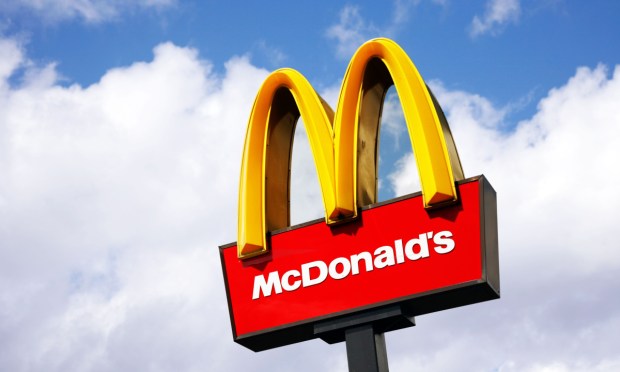
McDonald’s sales fell for the first time since 2020 as lower-income consumers stayed home.
The fast food giant released quarterly earnings Monday (July 29) showing a 1% dip in sales, with management saying the company is feeling the same pressures as much of the quick-service restaurant (QSR) market.
“Beginning last year, we warned of a more discriminating consumer, particularly among lower-income households,” CEO Chris Kempczinski said during an earnings call.
“And as this year progressed, those pressures have deepened and broadened. The QSR sector has meaningfully slowed in the majority of our markets, and industry traffic has declined in major markets like the U.S., Australia, Canada, and Germany.”
During the question-and-answer portion of the call, KeyBanc’s Eric Gonzalez asked management why McDonald’s — typically thought of as a “trade down” dining option when money is tight — is not seeing that benefit now.
“Well, I think we are seeing trade down, but what we’re seeing is that the loss of the low income consumers is greater than the trade-down benefit,” the CEO said.
And while the company has seen lower-income diners pull back, Kempczinski noted that consumers are behaving more cautiously across the board.
“So, you are seeing consumers being much more discretionary as they treat restaurants,” he said. “You’re seeing that the consumer is eating at home more often. You’re seeing more deal-seeking from the consumer.”
To offset these pressures, the company says it will continue to promote discounted offers, such as its “free fry Fridays,” with plans for a future U.S. Value platform, McDonald’s President Joe Erlinger said.
“At the end of the day, we expect customers will continue to feel the pinch of the economy and a higher cost of living, for at least the next several quarters in this very competitive landscape,” Erlinger told analysts.
As PYMNTS noted last week, lower-income U.S. consumers still feel the burden of high prices, even as their expectations about inflation grow more positive, according to the University of Michigan’s Consumer Sentiment Index.
“Continued strength in consumer spending is consistent with the fact that sentiment among wealthy and high-income consumers — those with the most purchasing power — has climbed sharply over the past two years,” said Joanne Hsu, director of the Michigan survey. “In contrast, the burden of high prices continues to drag down sentiment for less wealthy consumers.”
Also last week, the Personal Consumption Expenditures (PCE) Index showed expenditures climbed 0.3% in the month of June, outpacing disposable personal income growth of 0.2% in the same period.
“As spending outstrips income growth, pressures on the wallet only grow more pronounced,” PYMNTS wrote.